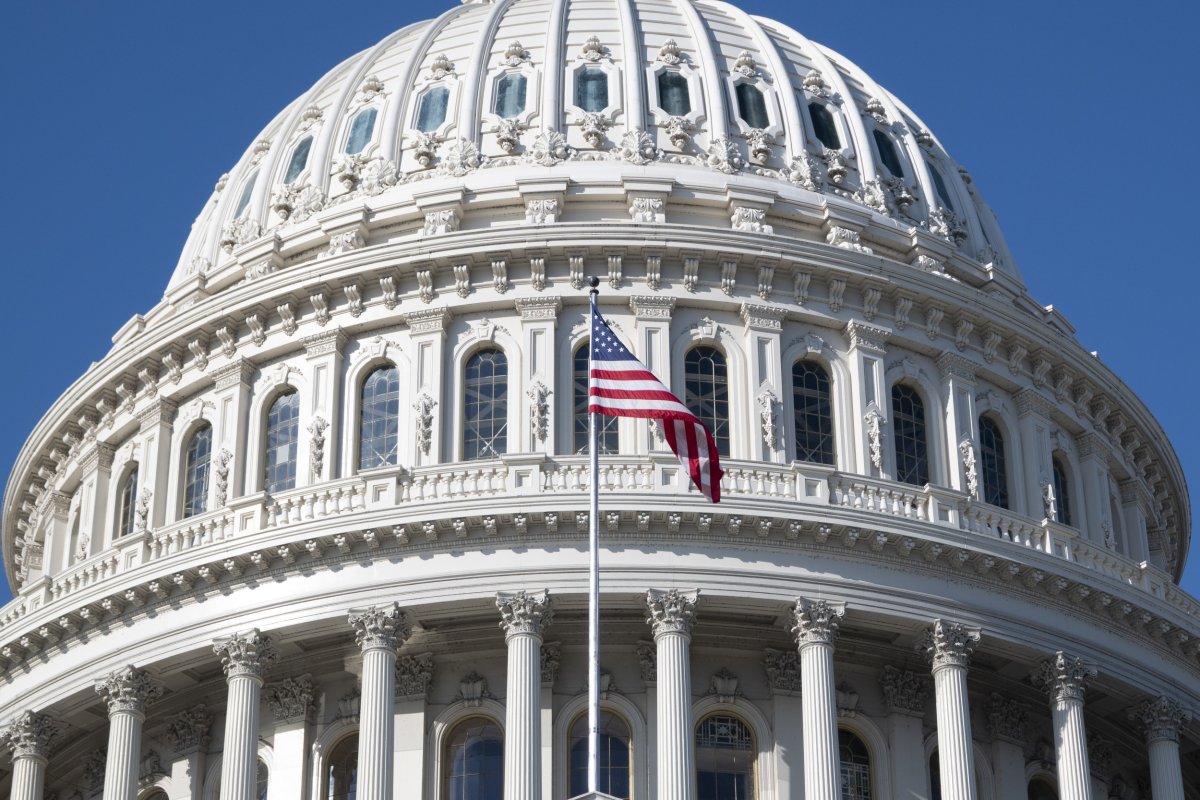A new Gallup poll showed that just 33 percent of Americans are satisfied with the nation's position in the world today. This is down from 65 percent in 2000. As Donald Trump and Joe Biden—two historically old and deeply unpopular presidential candidates—square off yet again for America's top job, it's not hard to understand these sentiments. America is in decline in the 21st century in measure after measure, from numerous public-policy failures, to increasingly dysfunctional politics, to an epidemic of mental health issues among young people.
This predicament raises two essential questions: Is America's downturn merely another dip in a long arc of non-linear, yet essentially upward, progress? Or is it, rather, the first phase of steep and irreversible national decline?
The answer lies with the American people. Like all nations, America is, above all, the hearts and minds of its people. And the trend line is moving hard in the wrong direction: Things are getting worse, not better. Tribalism is intensifying. Social-media platforms are getting smarter at manipulating human cognition. The political system's defects are worsening. And America's public-policy failures are deepening.
The remedies are easy to prescribe. We must improve civic education in schools, raise awareness about cognitive biases throughout society, spend more time with people from other political tribes, reduce and regulate the use of social media, rework the political structure to foster more political parties and equal representation, double down on free speech, feverishly guard election integrity, and support a new Republican champion other than Donald Trump.
Yet in practice these goals have been impossible to achieve.
Two broad and overlapping global trends will only make reversing the free-fall harder as the 21st century marches on. First, technology is getting more sophisticated—at a dizzying pace. The positives are huge. The internet democratizes education. Streaming innovations like Netflix enrich entertainment. New products like self-driving cars revolutionize transportation. Highly sophisticated research dramatically improves medicine. Pioneering technologies substantially broaden the distribution of necessities like food and clothing.
But the negatives are unnerving. Online innovations like deepfakes compound the internet's harms. Poor cybersecurity undermines the safety of personal data and the control of computerized systems. Popular applications like Chinese-owned TikTok give rival governments control over Americans' private information. Artificial intelligence (AI) jeopardizes humanity in ways neither clear nor certain. Industrial innovations like fracking plunder the environment. Battlefield inventions like drones change the face of warfare.
Second, international affairs are getting more complicated. It took America a full two centuries to achieve global hegemony—and merely two decades to lose it.
As former United States CIA Director and Defense Secretary Robert Gates wrote in a September 2023 Foreign Affairs essay, The Dysfunctional Superpower, geopolitical threats to America are multiplying: "The United States finds itself in a uniquely treacherous position: facing aggressive adversaries with a propensity to miscalculate yet incapable of mustering the unity and strength necessary to dissuade them."

According to Gates, "The United States now confronts graver threats to its security than it has in decades, perhaps ever. Never before has it faced four allied antagonists at the same time—Russia, China, North Korea, and Iran—whose collective nuclear arsenal could within a few years be nearly double the size of its own. Not since the Korean War has the United States had to contend with powerful military rivals in both Europe and Asia."
But it's not just America's biggest rivals that matter. Within a few decades it's likely that even small countries will have military capacities that in key respects exceed those of the superpowers today. Given the dominance and cohesion of America's military, another civil war is highly unlikely. The worst-case scenario arising from America's dysfunction isn't domestic mismanagement; it's foreign policy miscalculation.
These dynamics establish a striking truism that looms over humanity: The world's pre-eminent democracy and most powerful nation is in decline precisely when the challenges faced by the world are mounting and its need for rational leadership has never been more urgent.
Somewhere beneath the thickening surface of tribal bedlam and political fervor, however, is still a core national impulse to confront and overcome big challenges. The question is how strong that impulse remains.
The French political scientist Alexis de Tocqueville visited America in 1831 and 1832. A close observer of human behavior, de Tocqueville traveled across the country taking copious notes on what he saw. His book, Democracy in America, is a classic text in political science. And he's been revered for capturing the true essence of America like few others have, either before or since.
Perhaps de Tocqueville's most profound insight was that the "greatness of America lies not in being more enlightened than any other nation, but rather in her ability to repair her faults." Twenty-first century America is putting this thesis through a searing test. Our nation is in decline—and the world will find out, soon enough, whether or not de Tocqueville's insight is still true.
William Cooper is the author of How America Works ... And Why It Doesn't.
The views expressed in this article are the writer's own.
Uncommon Knowledge
Newsweek is committed to challenging conventional wisdom and finding connections in the search for common ground.
Newsweek is committed to challenging conventional wisdom and finding connections in the search for common ground.
About the writer
To read how Newsweek uses AI as a newsroom tool, Click here.








